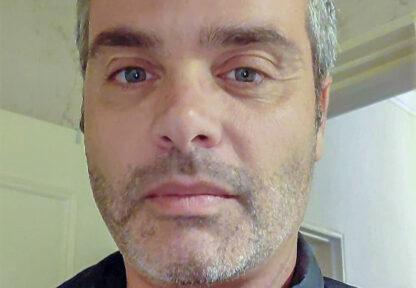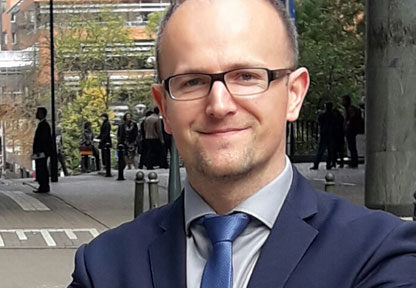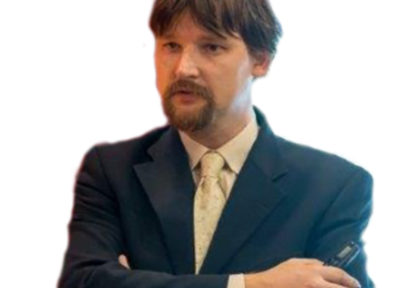Courses
AutumnAcademy
Monitoring, Evaluation and Indicators in ESI Funds:
Becoming more effective
openregistration
-
Description
- How to construct indicators in order to grasp the accomplishments that ESI Funds projects bring at the local and the national level?
- How to take care of targets at all programme stages to uphold the EU Commission demands and still keep them simple to understand?
- How to effectively monitor progress?
Monitoring and evaluation are integral elements of any ESI-funded activity, strongly reinforced by the Commission. Participation in this workshop will provide you with the understanding and skills necessary to collect valid data and select the right evaluation method necessary to assess the accomplishment of targets and results of Operational Programmes.
In ESIFA we know training needs to be practical and interactive to bring applicable results, so our experts in monitoring and evaluation will walk you through a series of interactive exercises and case study based in-depth discussions.
The Workshop will cover the following issues:
- The relation between evaluation purposes, criteria, questions, and stages of the intervention
- Evaluation approaches and strategies
- Exercise: assess terms of reference for coherence
- Counterfactual Impact Evaluation (CIE) strategies
- Theory-based impact evaluation approaches
- Monitoring and indicators systems in the ESI Funds (ESF perspective)
- Monitoring and evaluation: the role of indicators (ERDF perspective)
- Monitoring in practice
- Best practices
WHO IS THIS WORKSHOP FOR?
Experts from Managing Authorities, Audit Authorities, Intermediate Bodies, Regional and local authorities, Court of Auditors
External evaluators
Beneficiaries of EU funded projects -
Programme
Wednesday 13 November 2024
-
09.00
Welcome of the Participants
Welcome note by the ESI Funds Academy and Chair, Introduction Round
-
09.15
WHY do we need monitoring?
- Role of monitoring for Operational Programmes and Projects;
- Stakeholders involved and share of obligations;
- Useful terminology and definitions
Łukasz Mikulec, Expert on monitoring, programme management and indicators
-
10.30
Coffee Break
Networking
-
11.00
WHAT shall we monitor (ESF+ perspective)?
- Legal framework of monitoring system 2021-2027 (ESF+ perspective);
- Performance Framework and mid-term review – 2014-2020 vs. 2021-2027
Łukasz Mikulec, Expert on monitoring, programme management and indicators
-
12.30
Lunch
-
13.30
Programming and monitoring in practice – tools to improve the programmes’ intervention logic
- Tools to establish clear intervention logic;
- Practical exercise on designing the logic of intervention for a chosen specific objective – interactive session
Łukasz Mikulec, Expert on monitoring, programme management and indicators
-
14.45
Coffee Break
Networking
-
15.00
WRAP UP & discussion
The place of indicators in the programme performance framework – how to use them effectively to manage the programmes. Referring to our knowledge we will discuss together what mistakes are often made in the implementation of the indicators for projects and programmes’ management
Łukasz Mikulec, Expert on monitoring, programme management and indicators
-
15.30
End of the official Programm Day 1
-
18.00
Walking Tour and a get together dinner
After the completion of the first day of the Spring Academy we are inviting the participants to a Walking Tour and a networking dinner in a restaurant in Porto
Thursday 14 November 2024
-
09.00
Opening of the 2. Day
Introduction
Benedict Wauters; Director of European Programmes
Vladimir Kvača; Expert on policy design and evaluation -
09.30
Part I: WHAT is evaluation, WHY it is useful and WHO plays a role in evaluation process?
- What is evaluation and what is its purpose;
- Evaluation process;
- Evaluation stakeholders;
- Evaluation in EU funds management
Vladimir Kvača; Expert on policy design and evaluation
-
10.15
Coffee Break
Networking
-
10.30
Part II: WHAT shall we evaluate?
- What do we evaluate: what is the relevant scope of the evaluation?
- How to think about “interventions” via theories of change and action?
Benedict Wauters, Director of European Programmes
-
11.45
Part III: WHY shall we evaluate?
- Purpose of an evaluation;
- Evaluation criteria;
- Relation of purpose and criteria to the stages of an intervention
Vladimir Kvača; Expert on policy design and evaluation
-
12.30
Lunch
-
13.30
Part III: WHY shall we evaluate? (cont.)
- Evaluation questions;
- Relation of evaluation questions to criteria
Vladimir Kvača; Expert on policy design and evaluation
-
14.00
Evaluation questions workshop
Benedict Wauters; Director of European Programmes
Vladimir Kvača; Expert on policy design and evaluation -
14.30
Coffee break
-
14.45
Part IV: HOW shall we evaluate?
- Three overall evaluation approaches: merit, enlightenment, development;
- Theory testing versus pragmatic evaluation strategies: which research strategies to choose (selection framework);
- The role of an evaluability assessment
Benedict Wauters; Director of European Programmes
-
16.00
Workshop - What kind of evaluation do you need?
Benedict Wauters; Director of European Programmes
Vladimir Kvača; Expert on policy design and evaluation -
16.20
Q&A
Benedict Wauters; Director of European Programmes
Vladimir Kvača; Expert on policy design and evaluation -
16.30
End of the Official Programme of Day 2
Friday 15 November 2024
-
09.00
Part IV: HOW shall we evaluate? (cont.)
Pragmatic approaches (incl. Most Significant Change, Concept Mapping,…);
SurveysBenedict Wauters, Director of European Programmes
-
09.30
Quasi-experiments (incl. RCT’s, PSM, RDD,…)
Vladimir Kvača; Expert on policy design and evaluation
-
10.30
Coffee Break
Coffee Break and Networking
-
10.45
Counterfactual evaluation workshop
Benedict Wauters, Director of European Programmes
Vladimir Kvača; Expert on policy design and evaluation
-
11.30
Part IV: HOW shall we evaluate? (cont.)
Two examples of case studies (based on realist evaluations)
Benedict Wauters, Director of European Programmes
Vladimir Kvača; Expert on policy design and evaluation
-
12.30
Lunch
-
13.30
Part IV: HOW shall we evaluate? (cont.)
QCA case study approach
Benedict Wauters, Director of European Programmes
-
14.00
Part V: HOW to prepare evaluations?
- Creating your evaluation plan;
- Generating criteria for prioritising evaluations;
- How to deal with the requirement to evaluate all priorities in a programme for impact?
Benedict Wauters, Director of European Programmes
-
14.30
ToR
- Drafting Terms of reference
- What Evaluation deliverables you should require
Vladimir Kvača; Expert on policy design and evaluation
-
15.45
Q&A
Benedict Wauters, Director of European Programmes
Vladimir Kvača; Expert on policy design and evaluation
-
16.00
End of the Academy and Distribution of Certificates
-
-
Experts
-
 Profile
ProfileBenedict Wauters
Expert on organisational development and on the formulation, implementation, and evaluation of strategies, policies, programmes, and projects
-
 Profile
ProfileJosé Eduardo Baptista
Event Manager
-
 Profile
ProfileŁukasz Mikulec
Expert on monitoring and indicators
-
 Profile
ProfileVladimir Kvača
Expert on policy design and evaluation
-
-
Venue
Mercure Porto Centro Santa Catarina
Praça da Batalha, 116
4049-028 PortoNext to the training materials the training fee is covering:
a) the Catering during the training (3 Coffee Breaks and a Lunch every day);
b) a Walking Tour in Porto in the evening of the First Day of the Training;
c) get-together dinner in a Restaurant in Porto in the evening of the 1st Day



